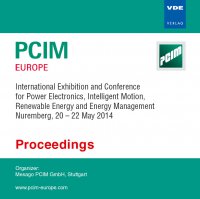Reliability Improvement of Large Area Soldering Connections by Antimony Containing Lead-Free Solder
Conference: PCIM Europe 2014 - International Exhibition and Conference for Power Electronics, Intelligent Motion, Renewable Energy and Energy Management
05/20/2014 - 05/22/2014 at Nürnberg, Deutschland
Proceedings: PCIM Europe 2014
Pages: 8Language: englishTyp: PDF
Personal VDE Members are entitled to a 10% discount on this title
Authors:
Beyer, H.; Sivasubramaniam, V.; Hajas, D.; Nanser, E. (ABB Switzerland Ltd., Semiconductors, Switzerland)
Brem, F. (ABB Switzerland Ltd., Corporate Research, Switzerland)
Abstract:
Power semiconductor modules typically undergo extreme thermal excursions, which require reliable large area solder connections. Here antimony (Sb) containing lead-free solders are promising candidates providing very good thermo-mechanical properties. In this work mechanical and microstructural investigations of soldering connections between Ni(P) plated AlSiC baseplates and ceramic substrates using lead-free solders Sn5Sb and Sn8Sb are presented. The metallization for the ceramic substrates were bare copper and NiAu coated copper metallization. Overall results of antimony containing lead-free solders are compared with baseline solders - 62Sn36Pb2Ag and lead-free Sn-Ag-Cu (SAC) solders. The antimony containing lead-free solders exhibit significantly higher shear strength and ductility at ‘as soldered’ condition compared to the baseline solders. After subsequent isothermal aging at high temperature, antimony containing lead-free solders maintain their superior shear strength with good ductility. The sustainance of shear strength and ductility even after high temperature aging suggests, that the reliability of Sn-Sb solders is superior over 62Sn36Pb2Ag and lead-free Sn-Ag-Cu (SAC) solders.


